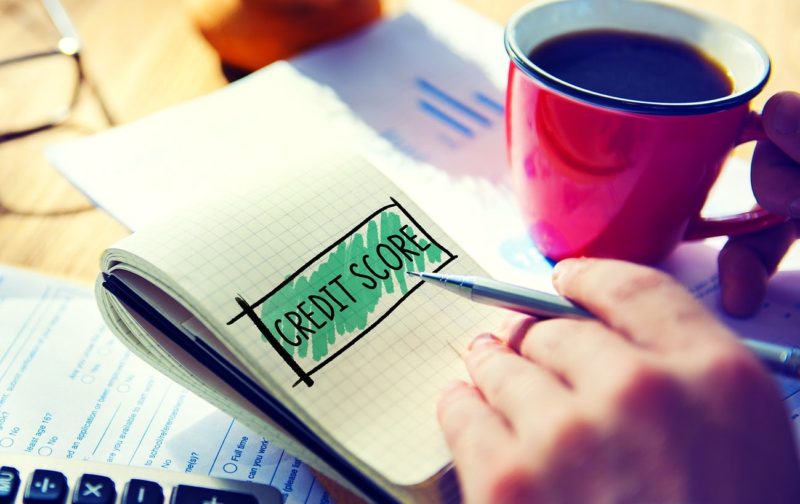
Credit bureaus use two primary credit score models when assigning you scores on your credit report. They are the FICO and the VantageScore models. FICO and VantageScore give two different number ranges for a good score, so it may be difficult for you to understand what a good score is and what is not.
This is why we will walk you through what makes up a good credit score. Side note, a good way to learn quickly and also monitor what is happening with your credit profile is to use a reporting service.
Enough of that for now, let’s dive into the credit ranges.
What's Ahead...
What is the FICO Credit Score Range?
- Excellent: 800+
- Very Good: 740 to 799
- Good: 670 to 739
- Fair: 580 to 669
- Poor: 300 to 579
What is the VantageScore Credit Score Range?
- Excellent: 781 to 850
- Good: 661 to 780
- Fair: 601 to 660
- Poor: 500 to 600
- Very Poor: 300 to 499
Because these two different models have different score ranges for good credit, you may be unsure if you have good credit or not.
You’ll need to obtain a copy of your credit report AND credit score from each credit bureau to see what score the credit bureau has given you. Then you’ll be able to understand if you have a good score and why it is important.
Generally, a good score will be any score over 661. The closer the score is to 750, the better it is.
Why is a Good Credit Score Important?
A good score is your key to being approved for various loans or credit cards. With a good score, you get approval for car loans, mortgages, and other credit accounts. Not only will you be approved for financing with a good score, but you will also have better options for interest rates and term limits.
Some employers also check your credit to see if you are a responsible borrower. With a good score, you are more likely to be offered the job than someone who has a poor score, which is another reason why a good score is important.
How Do I Keep a Good Credit Score?

Just because you currently have a good credit score doesn’t mean it will stay that way. You have to do work each month to maintain a good score, or it will begin to dip. There are steps to take and things to avoid if you want to keep a good score.
- Don’t Frequently Apply for Credit. Applying for credit causes a hard inquiry to show up on your credit report. Hard inquiries occur when a creditor checks your credit report for credit approval, and they can negatively impact your score. If you must apply for credit, try to limit the application process to just one creditor. Too many hard inquiries in a short amount of time can drop your score significantly, and the hard inquiries will remain on your credit report for two years.
- Don’t Miss a Payment. Payment history is 35% of your credit score and is the largest contributing factor that makes up your score. Missing a payment can cause a significant hit to your score, even if it’s just one payment that was 30 days late. A late payment is considered a negative item and can stay on your credit report for up to 7 years, so you must never miss a payment if you want to keep a good score.
- Maintain a Diverse Credit Portfolio. Your credit portfolio is a collection of all your credit accounts. Creditors like to see a credit portfolio with a mixture of credit accounts and loans with revolving credit installment plans. This mix shows creditors that you can successfully maintain different types of credit accounts.
- Keep Accounts Open. It may be tempting to close that credit card with a high interest rate and annual fee once you have paid it off, but you should keep it open if you want to maintain a good score. Keeping accounts open is more beneficial than closing accounts. Closing accounts reduces your total available credit, which can increase your credit utilization ratio. Keeping accounts open contributes to your credit history age, which is another important factor in determining your score.
- Don’t Co-Sign. Having a good score may cause friends or family members to ask you to co-sign with them on a loan or credit card account. It can be a risk to be a co-signer on a loan or credit card. If they miss a payment or default on the loan, your credit will suffer.
How to Improve Your Credit Score?
If your credit score is just below good, there are ways you can improve it. Keep in mind that this is not an overnight process. The lower your score is, the longer it will take to raise it. Consistency is the key to improving scores.

How to Improve Your Score from Fair to Good?
If you’re close to having a good score but still find yourself in the fair range, there are some steps you can take to bump your score to the next level.
- Make Timely Payments. Missing a payment can significantly hurt your credit score and take you even longer to get a good score. Make sure you always make your payments on time by paying the minimum balance due each month.
- Decrease Your Credit Utilization Rate. Credit bureaus look at how much of your total available credit limit you have used on all of your credit accounts. This is known as your credit utilization rate. When you have a credit utilization rate of more than 30%, your score can dip or, at the very least, plateau in the fair score range. Try to decrease your credit utilization rate to below 30% if you want to see your score jump a few points. The optimal range for credit utilization is 10%, but credit bureaus look at a credit utilization of 30% or less as acceptable.
How to Improve your Score from Poor to Good?
If you have poor credit, you’re likely going to have more work to do than if you have fair credit. A bad credit score likely means you have negative items, a high credit utilization rate, and a limited credit portfolio.
The good news is that a bad score isn’t permanent. There are steps to follow to improve your score, and you should get started as soon as possible.
- Take Care of Negative Items. Negative items like missed payments or collection accounts will significantly decrease your credit score. You need to take care of negative items immediately if you want to see your score increase. There are multiple ways to do this, one that is highly effective is a reputable credit repair agency.
- Lower Your Credit Utilization Rate. There are two ways you can do this:
- You can pay off one of your credit cards so that it lowers the total balance of all your credit accounts.
- You can increase the credit limits on your current credit cards.
Lowering your credit utilization rate can improve your score as soon as the following month. Just make sure that you keep your credit utilization rate down by refraining from running up high balances on your credit accounts.
- Add a New Credit Account. This may be difficult if you have a bad credit score or are struggling with making your monthly payments on time, but you should consider adding a new credit account to help build your credit. A new credit account will decrease your credit utilization ratio as long as you don’t run up a high balance. We recommend using a new credit account to charge one thing each month, such as a streaming service bill, and setting up your bank account to pay the credit card bill automatically each month. Adding a new credit account can also help diversify your credit portfolio, increasing your score.
There are also good secured credit cards that help to boost your credit. These are an excellent option, you just have to make sure you choose one that reports to the three credit bureaus.
Wrapping Up
A good credit score is one of the most important numbers in your life. It can help you finance a car or a house. It can also be the key to getting the apartment of your choice.
Not only will a good score give you better approval odds, but you will have a better interest rate and term limit options for the loan or credit account you’re approved for, which will save you money in the long run.
A high-interest rate is often the only approval option for people with bad credit, and this can cost people thousands of dollars each year. When you have a good scores, you receive better interest rates, which saves you a substantial amount of money each year. Add this up over the course of 10 years and it is SIGNIFICANT. What doesn’t go to the bank, can go into assets that will compound in a BENEFICIAL direction for you.
If you’re unsure of your credit score, get a copy of your credit report from the three credit bureaus. The report will give you your score as well as all of the information reported to calculate your score.
How do You Get an 800 Credit Score?
Paul Martinez is the founder of BendingDestiny.com. He is an expert in the areas of finance, real estate, and eCommerce.
Join him on BendingDestiny.com to learn how to improve your financial life and excel in these areas. Before starting this blog, Paul built from scratch and managed two multi-million dollar companies. One in the real estate sector and one in the eCommerce sector.


